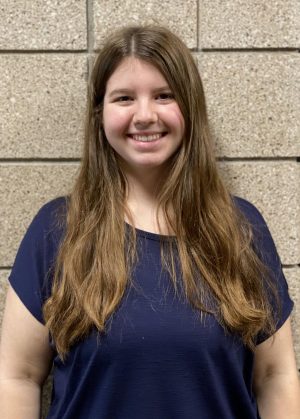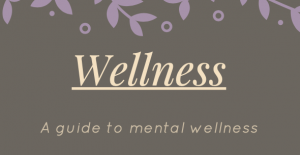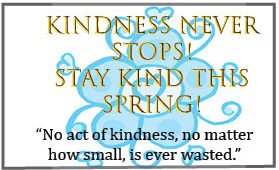Junior raises awareness for adolescent mental health
March 16, 2021
During a time of uncertainty due to the pandemic, mental health issues and disorders are more common in teens and adults. One in six youth aged 6-17 experience a mental disorder each year according to Nami.org. With this arising issue, junior Grace Werch based her social issues research project on adolescent mental health.
This class, taught by english teacher Amy Wenig, focuses on what a student may feel strong for and create a project to raise awareness for that topic.
“I chose adolescent mental health because I think it is something common in our daily lives and I wanted to focus on the education system and how it is related to adolescent mental health,” Werch said.
Each project for the class is different. Topics can vary from women empowerment to feeding families throughout the country. According to Werch, she chose adolescent mental health for her project because teens need to know they are not alone and that resources are available.
“I split my project into two parts, one part was teachers, the other part students. For the teachers I put together an informational presentation in front of all the teachers that had information about adolescent mental health, noticable signs that are shown if a student is struggling mentally, how to help and what resources we have in our school,” Werch said. “For the students, I made posters and ran a campaign for mental health hotlines, websites and resources that could be useful including Berlin Cares. I also went around putting sticky notes in the girls bathroom with positive notes to improve positivity and school spirit.”
Berlin Cares is a website that students and members of the Berlin community can use to contact legal authorities about a friend, loved one or classmate who is suicidal, abused, depressed or abusing substances. Although Berlin Cares was created in 2014, not many students or community members know the resources they have through Berlin Cares.
“I thought it was awesome that they have all those resources in one spot, but people didn’t know it existed. I think it would be more effective if people knew what it was and how to find it,” Werch said.
Stress factors such as major tests, preparing for life beyond high school, and especially the COVID-19 pandemic, all contribute to mental health issues in teens and adults.
“I think it is a timely topic. I think with the pandemic there is a large increase in mental illness among kids because of isolation and stress. I think it is so important that we destigmatize it so people can start to realize it is like any other illness and it shouldn’t be treated or viewed any differently,” Wenig said.
The Social Issues Research class spends the whole trimester researching current issues and finalizing presentations to give to the class or for Werch, the BHS staff.
“Having to talk to the teachers was a very interesting experience for me. It helped me grow as a person. It was quite nerve wracking but afterwards I had lots of teachers come up to me and tell me that what I did was cool or that they were proud of me,”Werch said. ”I think for the teachers to hear mental health issues from a student’s perspective was different from what they usually see. I took away the fact that I actually made a difference in their views.”
Creating a big presentation and listening to others present their topic can change and make an impact on peers and staff. Werch says she believes that through her project and her classmates’ projects that they made a change whether it is a teacher’s view or a student perspective.
“I think for myself and my classmates that we all got to grow as people to be able to look deeper into our topics that we are interested in. We all made a change in the world, big or small we all made a difference. We all took our own topic and got to make change on something we are passionate about,” Werch said.
Wenig says she hopes students will continue to make a difference within school and community.
“I think the largest thing they [students] can take away is the knowledge that they can help others and the desire to want to help others,” Wenig said. “So many of these projects are community based where they are reaching out and helping the community, working with younger students or needy in our community. The whole idea of helping others and the desire to help others is really important.”











